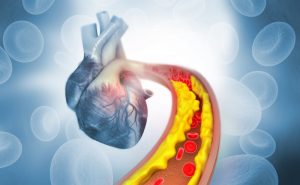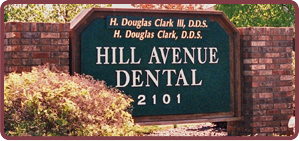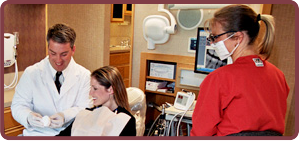 Over the last several years, researchers have been studying the connection between our teeth, gums, and heart. They established links between one of the most common oral health issues, periodontal disease, and medical issues such as strokes and heart attacks. Since this February is American Heart Association Month, there’s no better time to learn about how taking care of your mouth can also reduce your risk of developing heart disease. Read on to learn what the research says and how you can protect your wellbeing.
Over the last several years, researchers have been studying the connection between our teeth, gums, and heart. They established links between one of the most common oral health issues, periodontal disease, and medical issues such as strokes and heart attacks. Since this February is American Heart Association Month, there’s no better time to learn about how taking care of your mouth can also reduce your risk of developing heart disease. Read on to learn what the research says and how you can protect your wellbeing.
Establishing The Connection
In a study published in 2014, researchers examined a group of participants who had both gum disease and heart disease. They found that people who were treating their gum disease had to spend between 10 and 40 percent less on heart care than people who didn’t have their oral condition treated. Through these studies, the researchers were able to determine a direct connection between the health of gums and the heart. A group of authors also reviewed several studies on heart and gum disease and found that infected gums increase a person’s risk of developing heart disease by about 20 percent.
Medical Conditions and Gum Disease
In addition to heart disease, periodontal disease has also been connected to other medical conditions throughout the body, such as respiratory infections and Alzheimer’s. Studies have predicted that the same toxins released by harmful oral bacteria that cause gum inflammation can get into the bloodstream and travel to other areas of the body.
It’s predicted that when these toxins navigate their way towards the cardiovascular system, they can cause vital blood vessels and chambers of the heart to narrow. This causes the range of conditions that the term “heart disease” accompanies, including rhythm problems, strokes, heart attacks, and even failure. That’s why the American Dental Association and American Heart Association have publicly acknowledged the connection between these two conditions to inform people of potential health risks due to an accumulation of oral bacteria.
Preventive Health Tips
The best way to stop periodontal disease in its tracks is with early intervention. That’s why your dentist recommends semi-annual checkups and cleanings. Each time they examine your mouth, they’ll be on the lookout for common signs of gum disease, such as swollen or irritated gums, bleeding gums, tooth sensitivity, or gum recession. If they do spot these issues, they can quickly develop a customized treatment plan to help reverse them before they get any worse, causing severe issues such as tooth loss. These appointments can be paired with good dental habits to help maintain good overall health. Here are some additional health tips:
- Maintain a nutritious diet.
- Brush twice each day.
- Floss daily.
- Rinse with antibacterial mouthwash daily.
- Protect your mouth while playing impact sports or activities.
With the right preventive measures in place, you can ensure that your health is taken care of. Because this February is American Heart Association Month, there’s no better time to put these healthy practices in place!
About the Author
Dr. Doug Clark, Jr. has over 30 years of experience helping his patients optimize their oral and overall health. He frequently takes continuing education courses and programs that help him sharpen his skills and provide his patients with the high-quality dental care that they deserve. He is also a member of several professional organizations, including the American Dental Association, Wisconsin Dental Association, and Academy of General Dentistry, to name a few. For questions or to schedule a checkup and cleaning, visit Hill Avenue Dental’s website or call 715-392-5161.









